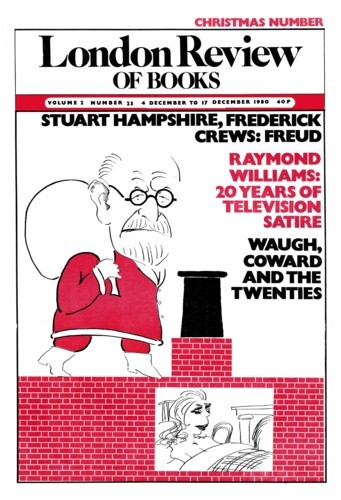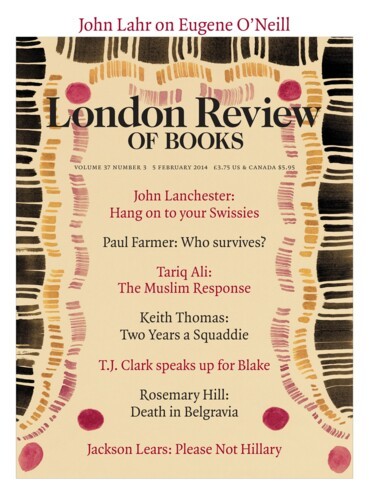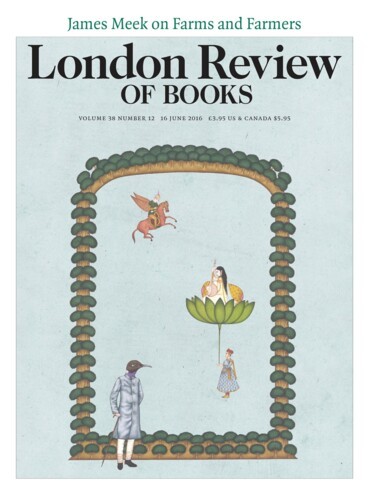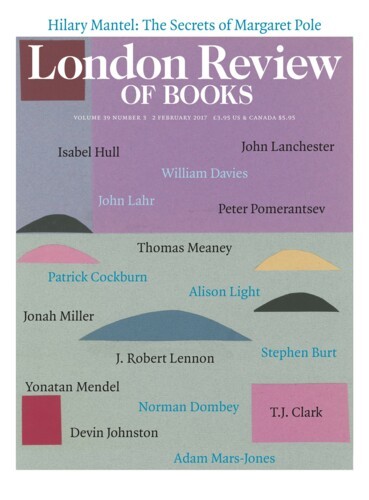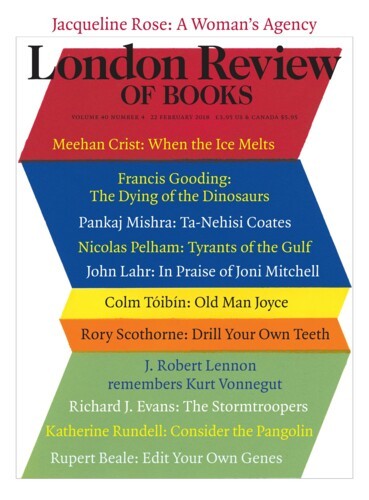Watching himself go by
John Lahr, 4 December 1980
Noël Coward never believed he had just a talent to amuse. A man who spent a lifetime merchandising his de-luxe persona, Coward liked to make a distinction between accomplishment and vanity: ‘I’m bursting with pride, which is why I have no vanity.’ A performer’s job is to be sensational; and in his songs, plays and public performances, Coward lived up to the responsibility of making a proper spectacle of himself. His peers had difficulty in fathoming this phenomenon. T.E. Lawrence thought Coward had ‘a hasty kind of genius’. Sean O’Casey spat spiders at the mention of his name: ‘Coward hasn’t yet even shaken a baby-rattle of life in the face of one watching audience.’ J.B. Priestley, as late as 1964, taxed him mischievously: ‘What is all this nonsense about being called the Master?’ Shaw, who prophesied success for the fledgling playwright in 1921, warned him ‘never to fall into an essential breach of good manners’. He didn’t.
